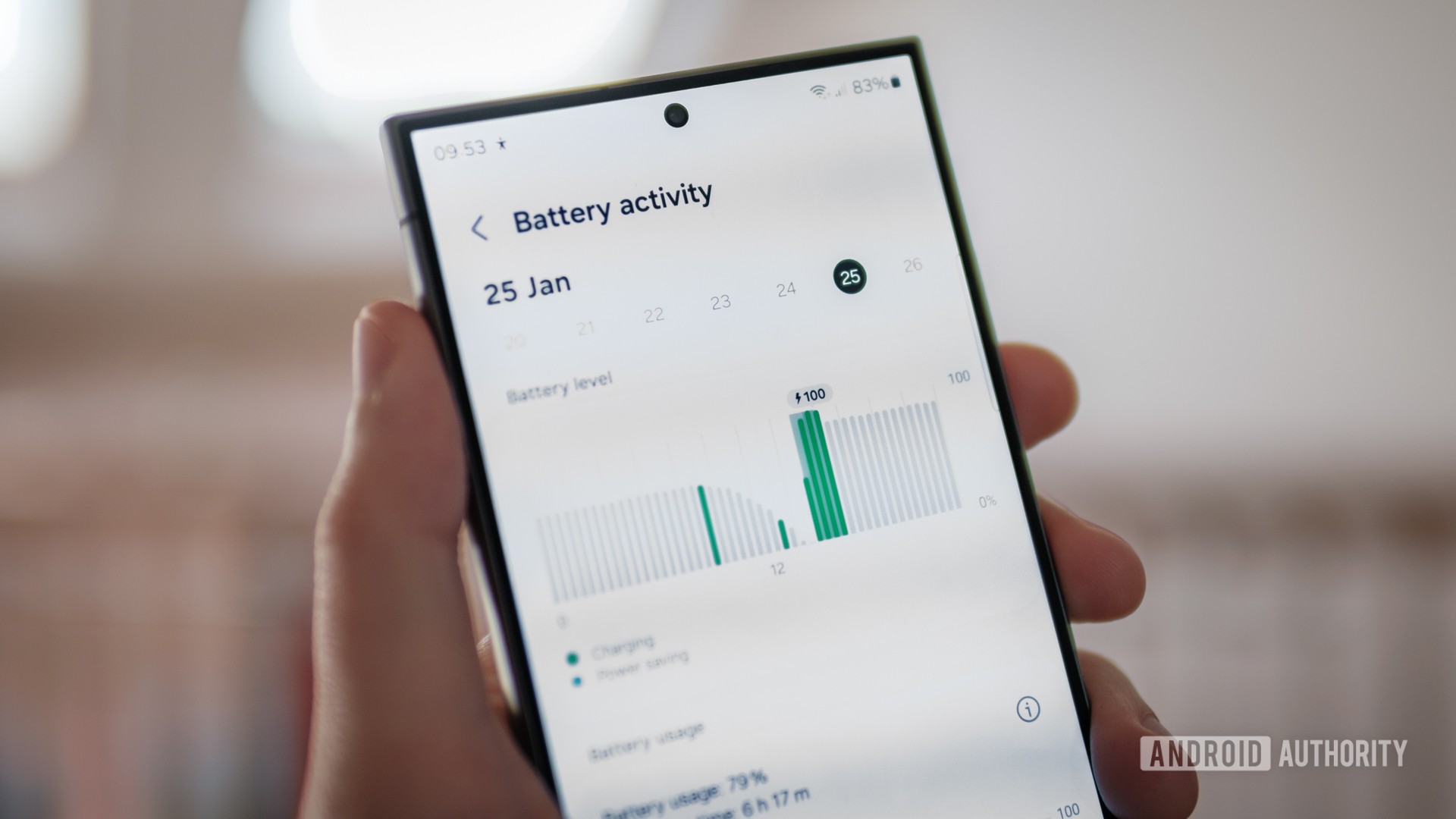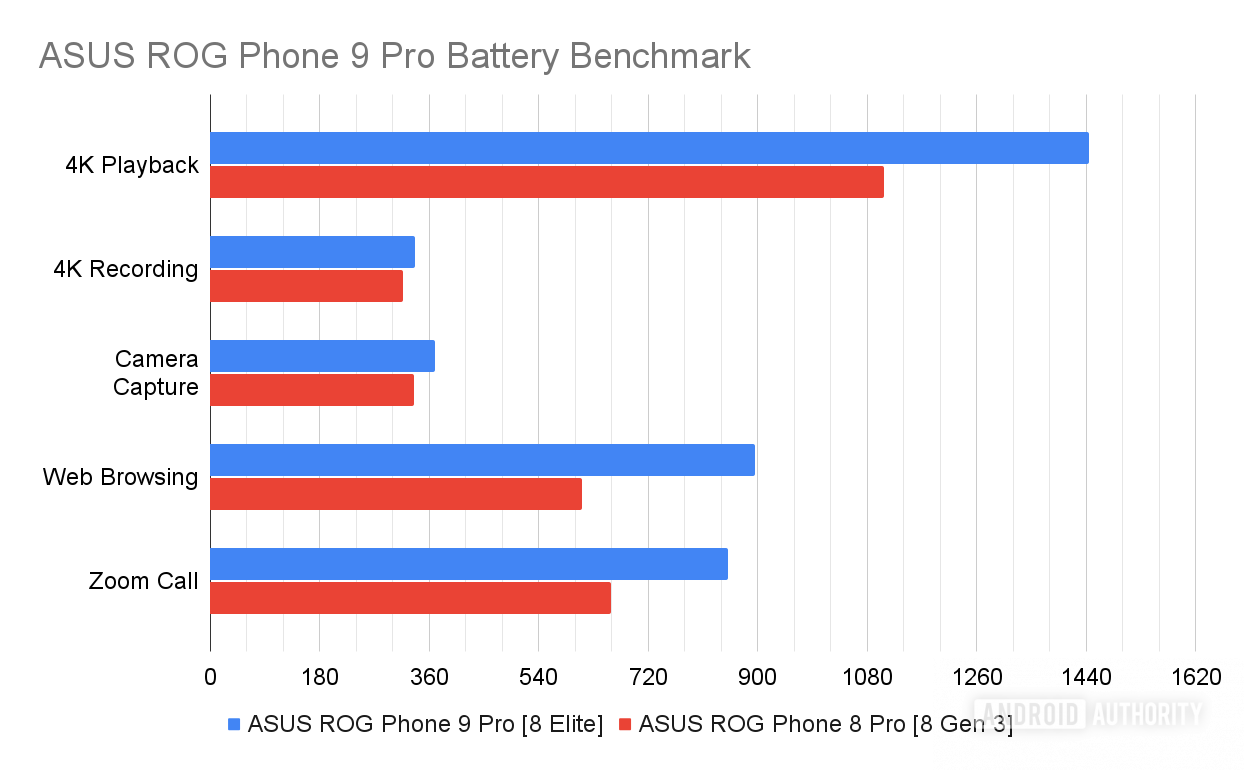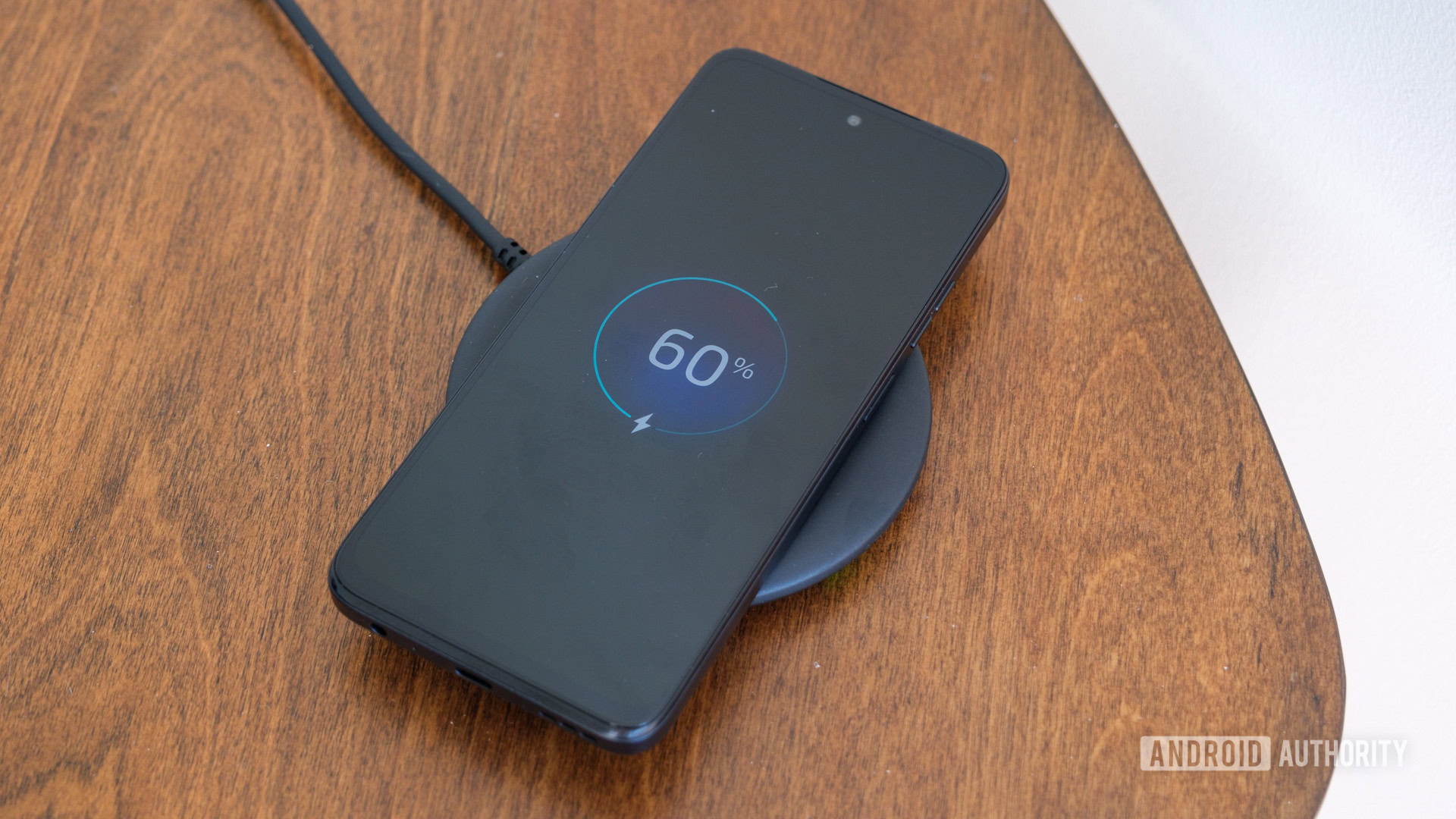Affiliate links on Android Authority may earn us a commission. Learn more.
Tested: Forget performance, battery life is the reason to buy a Snapdragon 8 Elite phone
November 19, 2024

Qualcomm’s sales pitch for the Snapdragon 8 Elite is performance, performance, performance. Whether you’re playing games, running the latest AI tasks, or simply using the new Oryon CPU to flick through your favorite apps, the latest Snapdragon promises to be fast. Probably faster than you really need, in fact.
Battery life vs Performance: What's your priority?
However, tucked away in Qualcomm’s presentation was mention of up to 45% better energy efficiency for its new custom CPU setup, thanks in part to TSMC’s cutting edge 3nm manufacturing process. That’s the potential to add significant hours of screen-on time to certain scenarios. To see if these claims have any merit, I grabbed the new ASUS ROG Phone 9 Pro, which is very similar to last year’s Snapdragon 8 Gen 3-packing ROG Phone 8, and ran the phones through a series of battery tests. The results certainly lend weight to Qualcomm’s lofty claims, albeit with a few caveats.
You’re reading an Authority Insights story. Discover Authority Insights for more exclusive reports, app teardowns, leaks, and in-depth tech coverage you won’t find anywhere else.
Snapdragon 8 Elite battery test
While the new ROG phone may be one of the first Snapdragon 8 Elite phones, the hardware similarities to its predecessor make it a brilliant phone for comparison. Its display specs are virtually unchanged, the camera capabilities are very similar, and its battery is only 7% larger, which is easy to account for. If there are significant battery life improvements to be found, it’s going to be down to the processor. Here’s what I found.

We treat these figures as a rough ballpark (every user is different, after all), but battery life is improved in all of our tests, and two key things really stand out. First, the camera and video capture tests score a relatively small improvement of 10% and 6%, respectively. Their improvements are almost certain due to the bigger battery, so the new chip breaks roughly even here. Running camera hardware consistently is a very big consumer of battery power, making any CPU efficiency gains less significant.
However, flick to instances where the CPU is a bigger factor in power consumption, and the battery life improvements jump up. Web browsing is the biggest winner, boasting a whopping 46% improvement that takes the phone just shy of 15 hours of constant use. 4K playback and Zoom meetings also see a substantial 30% boost each, possibly a bit lower than the web test because they rely on other hardware blocks, like the video decoder, as well. Still, these use cases benefit from TSMC’s 3nm node, and the lack of little cores clearly doesn’t hurt Qualcomm’s CPU design for these sorts of tasks.
I couldn't quite hit Qualcomm's 45% better efficiency claim, but wasn't too far off in the best-case.
Subtracting out the larger battery, Qualcomm’s 45% efficiency boost claim is a little higher than the results I’ve seen, so it’s certainly a niche best-case scenario. I calculate that the Snapdragon 8 Elite accounted for a roughly 18% average boost to battery life across these five tests, peaking at 39% in the web test. This is still a significant improvement that will result in several hours more screen-on time for real-world use cases.
Energy efficiency is the game changer

We all yearn for longer battery life and have all too often turned to bigger battery capacities to make it through a day of heavy use. Although the ROG tested here has a huge battery as well, it’s clearly now more than most will need. A vastly more efficient processor changes that dynamic; we can have exceptional battery life without hulking great big batteries (and phones). This might just be one of the biggest perks of upgrading to a new Snapdraogn 8 Elite phone, like the upcoming Samsung Galaxy S25, in the next few months.
Of course, we shouldn’t dismiss the performance potential of the Snapdragon 8 Elite either. It clearly benchmarks very well, providing a noticeable uplift over the previous generation. However, there are certainly diminishing returns for real-world performance, both in terms of typically lightweight apps like web browsing and even gaming, where hitting a steady 60fps seldom requires the latest mobile GPU. Moving to a new processor won’t necessarily make your phone feel all that obviously snappier anymore, but the Snapdragon 8 Elite will make the battery last a whole lot longer.
Typical users are looking at potentially hours of extra screen-on time.
With all of this said, I’m not expecting every Snapdragon 8 Elite phone to offer quite the same efficiency benefits I’ve seen here. Hardware and software optimations play their own part, and ASUS’ balanced performance profile certainly doesn’t run the processor at full tilt. Still, I’m more than cautiously optimistic that next-gen smartphones will realize significant battery life improvements thanks to the Snapdragon 8 Elite.
Thank you for being part of our community. Read our Comment Policy before posting.